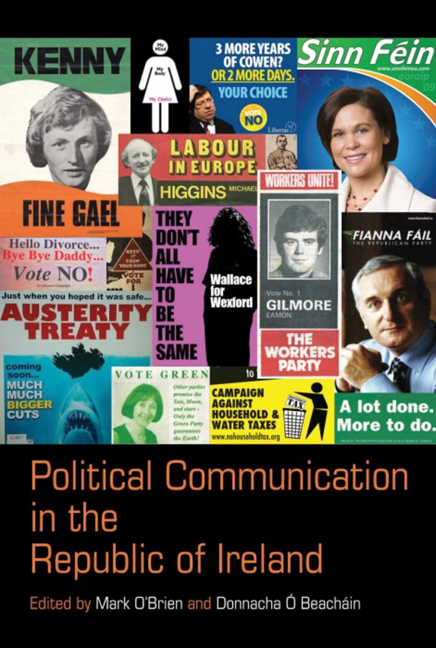Book contents
- Frontmatter
- Contents
- List of Illustrations
- Glossary
- Notes on Contributors
- Acknowledgements
- Introduction
- Part One Political Communication and Politicians
- 1 Political communication: an overview
- 2 Elections and political communication
- 3 A pragmatic partnership: politicians and local media
- 4 Political communication and the ‘loony left’
- Part Two Political Communication and Journalism
- Part Three Political Communication and the Public
- Conclusion
- Index
3 - A pragmatic partnership: politicians and local media
from Part One - Political Communication and Politicians
- Frontmatter
- Contents
- List of Illustrations
- Glossary
- Notes on Contributors
- Acknowledgements
- Introduction
- Part One Political Communication and Politicians
- 1 Political communication: an overview
- 2 Elections and political communication
- 3 A pragmatic partnership: politicians and local media
- 4 Political communication and the ‘loony left’
- Part Two Political Communication and Journalism
- Part Three Political Communication and the Public
- Conclusion
- Index
Summary
The relationship between TDs and the media in Ireland is little studied, with existing analyses tending to focus on general election campaigns (Brandenburg, 2005, 298). This narrow focus fails to acknowledge that in the era of the ‘permanent campaign’ what happens between elections also merits scrutiny. In Ireland, national parliamentarians are strongly embedded in the life of their constituencies. Therefore, having a high profile in the constituency is expected of TDs, and a strong presence in the constituency is vital for TDs who wish to retain their seats. In this sense, local media represent the most effective conduit through which TDs can communicate to their electorate that they are out there in the ether working hard for the interests of the constituency. Local media allow them to articulate their policy positions, their views and what they consider to be their achievements. Moreover, because the media may be viewed as neutral, publicity in local media implies that a gatekeeper (an editor or head of news) has deemed the work of the TD to be worthy of mention. By contrast, a TD's newsletter may be considered as simple marketing.
This chapter examines the interaction of TDs and the local media in the period between general elections using a series of face-to-face interviews with seven TDs as well as parliamentary assistants, newspaper editors, and heads of news at local radio stations in two case-study constituencies. The interviews, granted on the basis of non-attribution, were conducted in 2007 with a view to establishing the approaches to, attitudes towards, perceptions of, and the practices inherent in the models of political communication that exist at local level. The chapter begins by outlining the perceived importance of local media to TDs by reporting the views of TDs, their Parliamentary Assistants (PAs) and local media editors / heads of news. It then considers the personal relationships that exist between TDs and local media personnel and the particular paradigm that this creates. The capacity of TDs to agenda-set in the local media is also considered and the journey of a press release from origin to publication/non-publication is examined in this context. Finally, the issue of bias in the media is analysed from both the political and media viewpoints.
- Type
- Chapter
- Information
- Political Communication in the Republic of Ireland , pp. 45 - 62Publisher: Liverpool University PressPrint publication year: 2014



